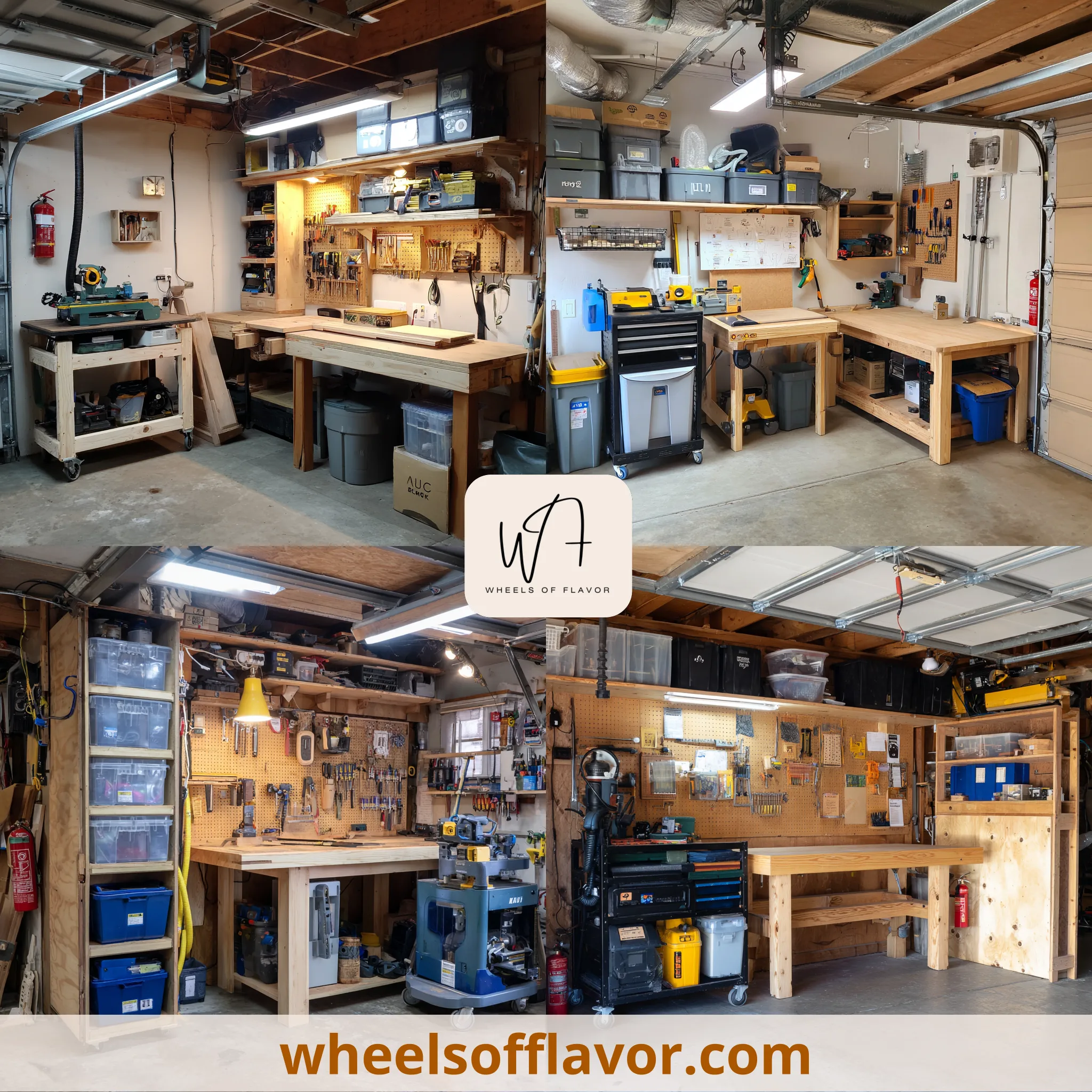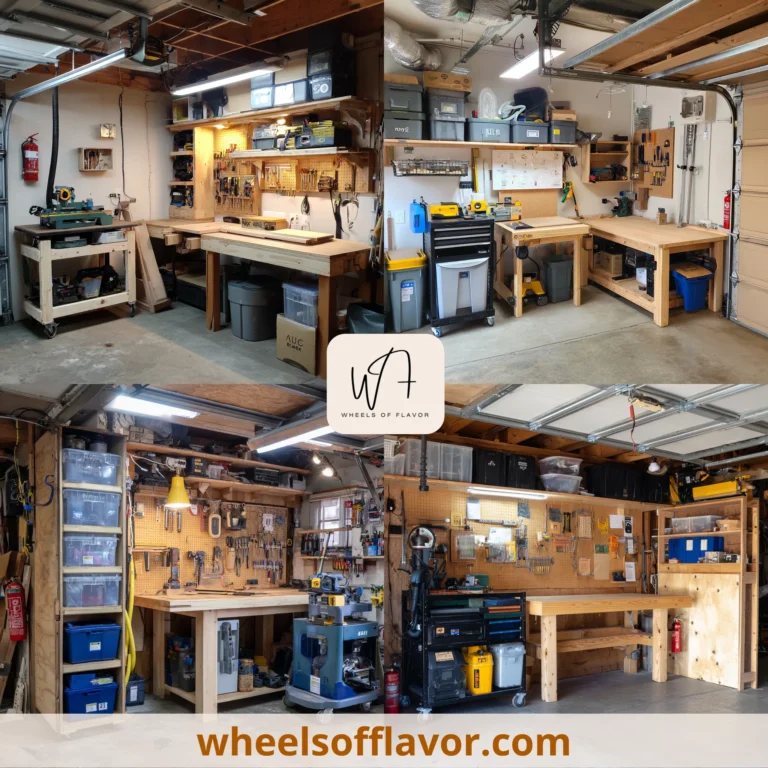
Creating a functional wood shop in a limited space is a common challenge for DIY enthusiasts and hobbyists. With the rise of urban living and smaller homes, many people are seeking ways to pursue their woodworking passions without needing a large garage or dedicated workshop. This article explores small wood shop ideas that maximize efficiency and organization, making it possible to craft beautiful projects even in tight quarters. By implementing smart storage solutions, versatile tools, and space-saving layouts, you can transform a corner of your home into a productive and inspiring workspace. Whether you’re a beginner or an experienced woodworker, these ideas will help you overcome spatial constraints and enhance your creativity. Embracing small wood shop ideas not only saves space but also promotes a more organized and enjoyable crafting experience. Let’s dive into practical tips and innovative approaches to make the most of your compact workshop.
Space-Saving Small Wood Shop Ideas for Tool Storage
Effective tool storage is crucial in a small wood shop to keep your workspace clutter-free and safe. Start by utilizing vertical space with wall-mounted pegboards or slatwall systems. These allow you to hang tools like hammers, saws, and measuring tapes, keeping them within easy reach while freeing up floor area. For larger tools, consider fold-down workbenches or mobile carts that can be tucked away when not in use. Another great idea is to use magnetic strips for holding metal tools, which can be mounted on walls or the sides of cabinets. Built-in shelving with labeled bins for smaller items like screws and nails helps maintain order. By organizing tools efficiently, you reduce the time spent searching for items and increase productivity. Remember, a tidy shop is a safe shop—minimizing tripping hazards and ensuring tools are stored properly. For more inspiration on storage solutions, check out this guide from Popular Woodworking. Incorporate these small wood shop ideas to create a streamlined environment that supports your projects.
Essential Small Wood Shop Ideas for Maximizing Workbench Efficiency
The workbench is the heart of any wood shop, and in a small space, it needs to be multifunctional. Opt for a compact, sturdy bench with built-in storage, such as drawers or shelves underneath. A foldable or collapsible design is ideal for shops that double as other living areas. Consider adding a vise and clamping systems to secure projects without taking up extra space. For added versatility, use a modular workbench that can be reconfigured based on your current project. Lighting is also key—install LED strips under shelves or above the bench to ensure good visibility. Keep the surface clear by using tool holders or hooks on the sides. By focusing on efficiency, your workbench can handle a variety of tasks, from cutting to assembly, without feeling cramped. These small wood shop ideas help you make the most of every inch, turning a limited area into a highly functional workspace. For DIY projects that complement your bench, explore ideas at https://wheelsofflavor.com/diy-projects.
Innovative Small Wood Shop Ideas for Dust Management and Safety
Dust and safety are major concerns in any wood shop, but they are especially critical in small spaces where debris can accumulate quickly. Implement a dust collection system with a portable vacuum or built-in ducts to keep the air clean and reduce health risks. Use shop vacuums with HEPA filters attached to power tools to capture dust at the source. For safety, ensure proper ventilation by adding a window fan or an air purifier. Store hazardous materials like finishes and solvents in sealed containers and place them in a locked cabinet if children are around. Keep fire extinguishers and first-aid kits accessible. By integrating these small wood shop ideas, you create a safer environment that protects both your health and your projects. Regular cleaning and maintenance will prolong the life of your tools and make your shop more enjoyable to work in. Prioritize safety to ensure your woodworking hobby remains a positive and rewarding experience.
Conclusion
In summary, small wood shop ideas are all about creativity and efficiency. By focusing on smart storage, versatile workbenches, and effective dust management, you can transform even the tiniest space into a productive workshop. These strategies not only save room but also enhance safety and organization, making woodworking more accessible and enjoyable. As you implement these tips, remember that the key is to adapt and personalize based on your specific needs and projects. Looking ahead, consider incorporating technology like digital measuring tools or compact CNC machines to further optimize your shop. The future of small woodworking is bright, with endless possibilities for innovation. Start small, think big, and let your creativity flourish in your own efficient workspace. For ongoing inspiration and projects, keep exploring new ideas and techniques to continually improve your setup.
Frequently Asked Questions
Q: What are the best tools for a small wood shop?
The best tools for a small wood shop are compact, multifunctional, and easy to store. Essential items include a cordless drill, a jigsaw, a compact table saw, and a rotary tool. Hand tools like chisels and clamps are also valuable as they take up less space. Opt for tools with folding features or those that can be mounted on walls to maximize efficiency. Always prioritize quality over quantity to avoid clutter.
Q: How can I reduce noise in a small wood shop?
To reduce noise in a small wood shop, use sound-absorbing materials like foam panels on walls or ceilings. Choose quieter power tools and operate them during appropriate hours to avoid disturbing others. Adding rubber mats on the floor can help dampen vibrations. If possible, isolate the shop area with doors or curtains. Regular maintenance of tools also keeps them running quietly and efficiently.
Q: Can I set up a small wood shop in an apartment?
Yes, you can set up a small wood shop in an apartment by focusing on portability and low-dust options. Use hand tools instead of loud power tools to minimize noise and space needs. Set up in a well-ventilated area like a balcony or a dedicated corner, and use a drop cloth to protect floors. Consider projects that generate less dust, such as carving or finishing work, and always clean up thoroughly after each session to maintain a livable space.

